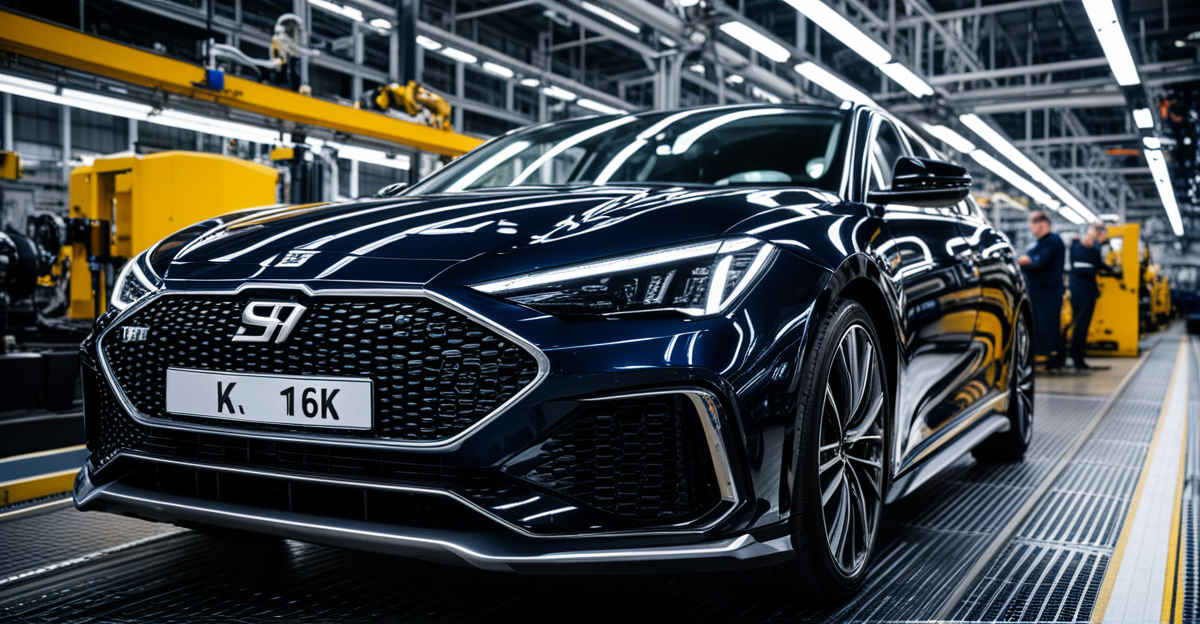AI Integration in UK Automotive Manufacturing
Artificial intelligence plays a pivotal role in UK automotive industry, transforming traditional car production into a highly efficient, automated process. AI manufacturing integration encompasses advanced machine learning algorithms, computer vision, and robotics, which together streamline operations and enhance precision.
A primary application lies in robotics in car production. Modern UK plants deploy robotic arms for tasks ranging from welding to assembly, dramatically improving consistency and speed. These robots adapt via AI algorithms to optimize movements and adjust for variations, reducing error rates.
Also read : How Can the UK Automotive Industry Innovate to Meet Future Challenges?
Moreover, AI-driven quality control and inspection systems are becoming standard. Traditional manual inspections give way to AI-powered cameras and sensors that identify defects at a granular level in real-time. This ensures higher reliability and lowers waste, as issues can be detected and rectified immediately within the manufacturing line.
The combination of robotics and AI in automotive manufacturing makes processes more agile and flexible, responding to changing demands with greater efficiency. These technologies also provide critical data insights, enabling factories in the UK to maintain competitiveness on a global scale. Ultimately, AI integration is revolutionizing how vehicles are built, with tangible benefits for both manufacturers and consumers.
Have you seen this : How Can the UK Automotive Industry Innovate to Meet Future Challenges?
Real-World Applications and Case Studies
Exploring UK automotive AI case studies reveals how leading manufacturers harness AI’s power. Jaguar Land Rover and Nissan have integrated AI in their production lines to boost efficiency and reduce downtime. For example, AI-driven predictive maintenance systems analyze sensor data to forecast equipment failures before they occur, preventing costly delays. This application of AI manufacturing integration helps streamline workflows and optimize resource use.
In robotics in car production, these firms deploy advanced robotic systems that adapt via AI algorithms to changing production needs, improving flexibility and output quality. Collaborative efforts with technology partners and startups further accelerate innovation. These partnerships bring cutting-edge AI tools and fresh perspectives, enabling manufacturers to customize vehicles with greater precision while maintaining production speed.
Case studies also highlight AI’s role in real-time quality control, where AI-powered vision systems instantly detect defects, surpassing traditional inspection methods’ accuracy. Taken together, these AI success stories underscore a pragmatic, data-driven approach that enhances competitiveness. Such examples demonstrate how AI in automotive industry UK firms is transitioning from pilot projects to scalable, impactful solutions, driving substantial transformation across their operations.
AI Integration in UK Automotive Manufacturing
AI in automotive industry UK primarily involves AI manufacturing integration through advanced robotics and intelligent systems. Robotics in car production significantly enhance efficiency by automating repetitive tasks like welding, painting, and assembly. These robots use AI algorithms to improve precision and adapt to varying production requirements, enabling flexible manufacturing processes.
AI-driven quality control and inspection systems form a crucial component of this integration. High-resolution cameras combined with AI analyze components in real-time, detecting defects smaller than human inspectors can reliably identify. This reduces waste and rework by catching issues immediately, contributing to higher product reliability.
In UK automotive plants, AI manufacturing integration also extends to data analytics. Sensors embedded in equipment provide continuous feedback, allowing AI to optimize workflows and predict potential bottlenecks. Robotics in car production work in synergy with these AI insights, adjusting operations dynamically to prevent errors and maintain consistent output.
Together, these technologies elevate productivity and quality, showcasing how AI integration transforms traditional manufacturing into a smarter, more responsive system that meets evolving automotive industry demands.
AI Integration in UK Automotive Manufacturing
Advancements in AI manufacturing integration leverage sophisticated technologies such as deep learning, sensor networks, and real-time data analytics. These systems improve robotics in car production by enabling robots to perform complex, non-repetitive tasks that require adaptability and precision. Unlike conventional automation, AI-powered robots can learn from previous cycles to optimize performance continuously.
In UK automotive plants, AI-driven quality control and inspection systems use computer vision and machine learning to detect microscopic defects invisible to human inspectors. This ensures that quality assurance shifts from reactive to proactive, catching faults before assembly progresses. These systems analyze large datasets captured during production, applying pattern recognition to identify deviations instantly.
Moreover, the integration of AI helps synchronize various stages of manufacturing, facilitating a seamless flow from component fabrication to final assembly. For instance, AI algorithms predict maintenance needs, minimizing unexpected downtime and keeping production lines operational.
Collectively, AI in automotive industry UK is not just about automation but about creating an interconnected manufacturing ecosystem. This ecosystem allows greater customization in vehicle production and swift adaptation to consumer demands, underpinning the UK’s competitiveness in the global automotive market.
AI Integration in UK Automotive Manufacturing
The AI manufacturing integration in the UK automotive industry harnesses a combination of cutting-edge technologies to enhance production efficiency and quality. Central to this are robotics in car production, where AI-powered robots perform precise welding, painting, and assembly tasks with adaptive learning capabilities. Unlike fixed automation, these robots adjust their actions based on real-time data, improving flexibility and reducing error margins.
AI-driven quality control and inspection systems represent a significant upgrade to traditional methods. Using high-resolution cameras and computer vision, these systems analyze components continuously to detect microscopic defects invisible to the naked eye. This proactive approach accelerates defect identification and reduces costly rework.
Additionally, AI integrates data from sensors embedded throughout the production line. This data aggregation enables predictive analytics, helping anticipate equipment maintenance needs and preventing breakdowns that could halt production. Such data-driven optimization ensures smoother workflows and consistent output.
Together, these AI applications create a responsive manufacturing environment. By advancing AI in automotive industry UK, factories can meet fluctuating market demands, improve product reliability, and maintain competitiveness on the global stage while fostering innovation through interconnected systems.





